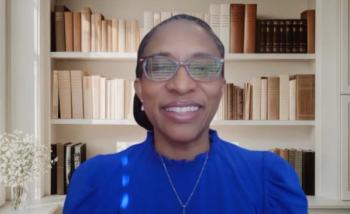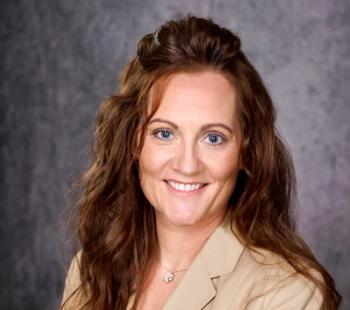
Patients open to AI, angry over broken system

A recent PwC survey shows many patients facing barriers to health care, and they are more eager to adopt tools that can help them find the right provider or assist in a diagnosis.
Las Vegas – Many patients are running into obstacles in getting health care, and there’s growing interest in AI tools that can help them find providers.
Those are some of the key takeaways from
But Millennials and those in Generation X, many of whom are raising children and caring for aging parents, are showing interest in AI solutions that can make it easier to get health care.
Thom Bales, U.S. Health Services Sector Lead for PwC, spoke with Chief Healthcare Executive® at the HLTH conference last week about emerging trends of patients and their hopes and frustrations with the healthcare industry.
With a majority (51%) saying the healthcare industry is broken, Bales says health industry leaders should recognize the frustrations many patients experience as they seek care.
Many are frustrated by “all of these questions around access, about reimbursement, about the paperwork,” Bales says.
A solid majority (55%) of all respondents said they had negative care experiences within the past 12 months, but that number rises to 74% for those with no insurance, according to the PwC survey.
About three out of 10 respondents (29%) said they skipped or delayed appointments or opted not to get prescriptions because they couldn’t afford them.
While weight loss medications (GLP-1 drugs) are showing promise in helping people shed pounds and addressing other needs, they remain too expensive for many Americans. “That is a source of frustration if you don't happen to be in the group that has the benefits that support the payment for that,” Bales says.
Most in that “sandwich generation,” who are caring for both kids and their parents, are employed and many have good incomes, but they are still having issues with access.
“They have their own health to take care of. They have the health of their children to take care of. They have the health of their grandparents or their parents to take care of. And they have a job. Their problem in accessing care is really very much a problem, most likely about convenience and time in their life and their ability to actually take the time find, you know, for their own health care,” he says.
Perhaps because of those time constraints, nearly three out of four (73%) in the sandwich generation say they are using or interested in AI-powered navigation tools that can help them find the right healthcare provider. The PwC survey includes both Millennials and Generation X in that sandwich generation.
In addition, 71% of those in the sandwich generation are using or interested in AI tools that assist doctors in reaching a diagnosis. “That is a significant increase from where it was,” Bales says.
Consumers are also understanding that AI technology that can be used to help clinicians make better assessments, Bales says.
“I think that as folks understand that AI is really it's a tool to help inform us, to help us understand problems better … it's not a tool that inherently makes decisions. I think people are starting to get more comfortable with that, and they're starting to use it in their own lives,” he says.
Those born in Generation Z, who have grown up with digital tools, are perhaps unsurprisingly especially interested in healthcare technology. About four in five (79%) use some form of healthcare technology, such as wearables or telehealth, on a monthly basis.
While a majority of those in Generation Z (57%) say they have trust in primary care physicians, that’s far lower than those in the Baby Boom generation (85%). That could reflect the fact that Baby Boomers typically have more health care needs and are more likely to engage primary care doctors than younger Americans, Bales notes.
More younger Americans are showing acceptance of AI technology and “a willingness to have augmentation in the clinical setting,” Bales says.
But he adds, “It is also interesting to see that some of the Boomers also, there's a willingness within there.”
While patients have their own frustrations with the healthcare industry, they are also increasingly cognizant of the strain on clinicians, the survey suggests.
More than two-thirds of those surveyed (69%) said their provider appeared rushed or pressed for time, while more than half (59%) said they thought their clinicians was burned out or exhausted. Physicians and nurses
Bales said the patients’ perspective of the stress on clinicians is telling.
“Consumers can see differences in what's going on in their visits today versus their visits before,” Bales says.
“They could sense much of the stress that caregivers are experiencing, and that came out in the survey,” he adds.






























